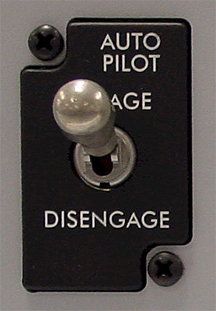Time Management: Remembering …
Three keys to time management are: remembering, setting priorities, and motivation.
It's easy to fall into the trap of thinking "I won't forget that." But the important thing is not just to remember it, but to remember it at the right time -- a time when you can take the first step in doing it.
Your thoughts are valuable. Write them down, whether they're ideas on how to save the world or reminders to wash the frying pan. Then figure out some way for the messages to get to you at a time when you can do the things.
Use calendars and lists. I have lists of things that can be done at home, lists of things that can be done when the stores are open, lists of things to do before going to work in the morning, etc. By looking at the appropriate list, I can forget about everything else and concentrate on the work appropriate for that moment.
Time Management: Setting Priorities ...
If you write a list of things to do this evening, it probably contains way more things than you can actually accomplish. That's fine. The list is valuable. By looking over it, you can choose the most important things and do them first. The rest can be transferred to other lists.
Some people say they don't need to spend time planning. That may be true. If you have a list of things to do that are all about equally important, and if you're sure that the most important things are on the list, then you don't need to spend any time comparing them. Just start doing one of them, it doesn't matter which one.
But for most people most of the time, some of the things are more important than others, so it's worthwhile taking a few minutes to read over the list and choose the most important to do first.
It's good to have a pen handy all the time to write down ideas. That way you can catch thoughts about important things that you might have forgotten to add to your lists.
Time Management: Motivation ...
You've set goals, written lists, chosen priorities, and identified what's important to do right now, but you don't feel like doing it.
Here are some ideas to help with motivation.
In the book "Feeling Good," David Burns points out that it's not necessary to "feel like" doing something in order to do it. You can just start. Usually, once you've started, you begin feeling more motivated to continue doing it.
I started feeling more in control when I started giving myself permission to cross things off lists. Deciding not to do something and putting an "X" next to it gives a feeling of relief, almost as satisfying as checking it off as done.
Sometimes I graph the total number of check marks per day. This feels good and gives me motivation to finish lots of things on my to-do lists.
Plan rewards and celebrations for yourself, such as special snacks after getting certain things done. Just taking a few seconds to admire the finished work, such as a tidy table or pile of clean laundry, is an excellent reward. Smile and tell yourself what a good job you did.
Even if you're in a hurry, you can plan rewards that take a few seconds, like standing up and stretching, looking out the window for 10 seconds, or tossing a pen in the air and catching it. If you plan them as rewards, they feel like rewards, and give you time to congratulate yourself on getting something done.
Time Management: Chronos and Kairos ...
In Greek there are two words for time. Chronos means amounts of time, like "20 minutes" or "two days". Kairos means the time when something occurs, like "at two o'clock" or "next Sunday".
We can think of time like money and budget it. We can decide to "spend" an hour on one thing or another. This is valid, but there's a big difference between time and money.
With money, you don't usually ask "should I spend this dollar, or that dollar?" All the dollars are the same. But two different hours are never the same. Different stuff is happening. You're at a different level of tiredness and hunger, and the level of daylight is different. Certain people or businesses are available by phone during one hour but not during another.
So if you're going to do something, it does matter which bit of time you select to do it in.
It can be confusing to try to figure out what's the most important thing to do at a given time. It works out better if you think more in terms of kairos time. Rather than "which of these things will I do now?", look at one of them and ask "What's a good time to do that?" and then schedule it.
Examples: A good time to phone someone is on their birthday. A good time to play with the children is when it's daylight outside. The best time to pay the phone bill is the first time you see it.
The idea of thinking in terms of kairos time is from "The Seven Habits of Highly Effective People" by Stephen Covey.
Myths of Time Management ...
Myth #1: There's too much to do; I can't handle it all.
This can't be the real reason why I have a messy house. After all, other people manage. It's encouraging to hear that there are others who also have trouble with the "little" things in life. That means that it isn't just that there are too many things for one person to handle: rather, it's possible, theoretically at least, for me to organize my time in a way that gets it all done.
Myth #2: There's plenty of time; I can do that later.
Funny. This is the exact opposite of myth #1. Yet both myths contribute to procrastinating. Rather than switch from one myth to the other, I need a consistent, realistic view of how much my time is worth and how much of it there is.
Myth #3: I'm busier than usual right now, so it makes sense to shift some tasks off to another time.
A tricky one. Occasionally it's really true, of course. But usually, I'm about equally busy all the time, really. My time is worth the same all the time, with a few exceptions like if I'm trying to be on time for a job interview or something.
It SEEMS that I'm unusually busy at any given moment, because at that moment, I'm AWARE of the things impinging one my time right then. A person can only be aware of so many things at once. The detail of the moment seems complex; the future seems simple, free and clear. But really life is always that complex.
I may think, "This is an unusually busy day because I have library books due." It seems reasonable; I know I only have books due on a small percentage of all days. But really, there are so many other aspects to life: dentist appointments, parties, holiday celebrations, bike repairs, etc etc etc that taking all into consideration, the other days are really just as busy.
I also tend to think I'll "have plenty of time" later the same day, too. And of course I don't.
Myth #4: Re-scheduling something to a later time is procrastinating.
No, re-scheduling is taking control and responding to new information about priorities and time available.
It's only procrastinating if you don't schedule it at all, or if you re-schedule for the wrong reasons -- which will become apparent when you find yourself re-scheduling the same thing more than about 3 times. In that case, stop and think about whether you really want to do the thing. If it's important, go ahead and start.
Myth #5: This little task is not important.
Example: I cut open a package of food and leave the little bit of plastic I cut off on the kitchen counter. Question: Shall I put the bit of plastic in the garbage right now? It seems that doing so is not important. The plastic isn't doing any harm where it is. It won't hurt me if I leave it there. I can always put it in the garbage later.
But actually it is important to put it in the garbage. I ask myself, "Is it important not to have it sitting there on the counter all year?" Yes. I don't want it there that long. OK, then I have to put it in the garbage -- now or some time in the next few days. Next question: Is my time more valuable now than it will be, say, tomorrow? I seem in a hurry now, but I will tomorrow, too. (See myth #3.) Really it's best to put it in the garbage right now. It's important enough to be worth the few seconds of my time.
The myth really means, "It's not important to do it RIGHT NOW." However, it is important. Either it's important or it isn't. When it's done doesn't affect that. It's important to wash the dishes before eating on them again; therefore it's important to wash the dishes. If it's important, it's probably worth doing now.















 Disordered or abnormal sleep is often the cause of major medical problems such as heart disease, strokes and high blood pressure. Failure to achieve a normal restful night of sleep is often the cause of a great deal of misery for patients and their loved ones.
Disordered or abnormal sleep is often the cause of major medical problems such as heart disease, strokes and high blood pressure. Failure to achieve a normal restful night of sleep is often the cause of a great deal of misery for patients and their loved ones.  It is with this in mind that the University of Maryland has created a multidisciplinary, comprehensive sleep disorders centre for the diagnosis and treatment of sleep disorders.
It is with this in mind that the University of Maryland has created a multidisciplinary, comprehensive sleep disorders centre for the diagnosis and treatment of sleep disorders.












